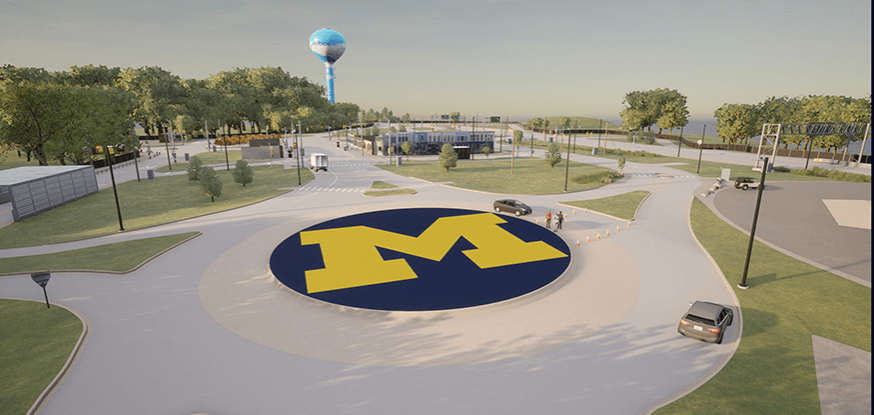Mcity, the University of Michigan’s autonomous vehicle testing facility, has launched its digital twin for mobility systems testing. This virtual replica of the physical Mcity facility will allow researchers to test their algorithms without the need to reserve time at the actual site.
Established in 2015, Mcity is the world’s first testing facility dedicated to autonomous vehicles. The 32-acre facility, located on the University’s North Campus, has been at the forefront of connected and autonomous vehicle technology research.
Built on top of the largest open-source simulator for testing autonomous vehicles and sensors, CARLA (Car Learning to Act), the newly released digital twin utilizes real-time data for physical environment simulation.
Darian Hogue, a software engineer at Mcity, revealed that the digital twin development took nearly a year and was supported by the National Science Foundation. Creating an accurate digital twin involved extensive gathering of real-world data from the physical test site.
Highlighting the advantages of digital twin to researchers, Zhie Qiao, a doctoral student in the College of Engineering, stated, “If you have a digital twin, a lot of work can be done in advance.”
Mcity Director Henry Liu emphasized that while the digital twin has various uses, it is beneficial to have a mixed-reality testing environment, where both the virtual and physical facilities are used together. He noted the existence of a “simulation-to-reality gap,” suggesting that verification in the physical world is still critical for establishing confident results.
One of the primary concerns is expanding access to Mcity’s resources. Hogue added that while other digital twins exist, they often come with a hefty price. By making it open-source, Mcity can provide students and researchers with accessible opportunities for autonomous vehicle testing and development.

